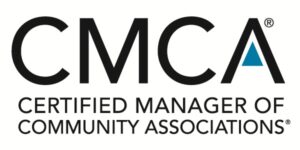About the Community Association Management Profession
Community association management is a relatively new occupation but has become vital and sophisticated. It has evolved into a career path that embraces tradition, business acumen, credentialing, and a grasp of increasingly complex state, federal, and international laws. When the profession was formed – in the 1970s – most managers entered it from a wide range of other occupations. Professionals in real estate, law, construction, accounting, finance, insurance, hospitality, facilities management, and even military service have become leaders whose combined talents and abilities helped build a rich foundation for this vocation.
There are between 60,000 and 65,000 community association managers and more than 365,000 community associations in the U.S. alone, according to the 2023 Community Association Fact Book published by the Foundation for Community Association Research. As of December 2024, data from the Bureau of Labor Statistics states that the median annual wage for community association managers was $78,400, and employment in the industry is projected to continue to grow over the next decade. These figures do not include the growing number of management companies, managers, and support staff in other parts of the world. The momentum of developing communities will continue. As common-interest community living becomes more widespread— and the number of retiring industry leaders also grows—the need for qualified, well-trained managers will also increase.
The Responsibilities
- Managing the operating and reserve funds of the association
- Organizing meetings of the association
- Assisting the board with the financial management, budgeting, and cash flow of the association
- Helping the board by obtaining and maintaining insurance for the association
- Helping the board to get bids managing contractors, such as maintenance and construction vendors
- Assisting the board by directing the development and enforcement of community rules
- Answering questions regarding the regulations of the association and helping the board follow fair procedures
- Assisting the board by ensuring homeowners adhere to the bylaws of the community association
- They liaise with service providers at the board’s direction, including snow removal, pool management, park management, roadways, municipal services, landscaping providers, etc.
- Resolving conflicts within the association
- Creating a sense of community for residents living within the association
The Opportunities

